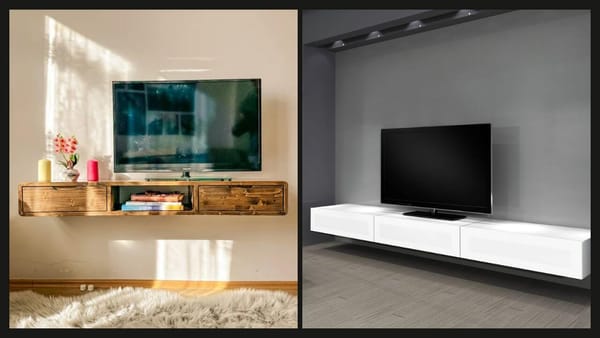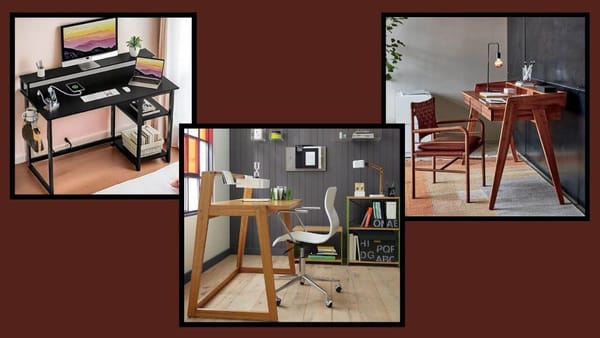A well-ventilated home office is essential for maintaining productivity, creativity, and overall mental and physical health. Poor air circulation can lead to fatigue, headaches, and allergies, impacting your ability to focus and perform at your best. In this blog post, we'll explore different types of fans and how they can help improve air circulation in your home office, regardless of your budget.
Desk Fans
Desk fans are small, portable, and perfect for personal use in a home office. They can be placed on your desk or a nearby shelf to provide a direct airflow.
Pros:
- Affordable
- Easy to move and adjust
- Takes up minimal space
Cons:
- Limited range
- May not circulate air throughout the entire room
Tower Fans
Tower fans are tall, slim, and designed to save space. They oscillate vertically, distributing air evenly across the room.
Pros:
- Space-saving design
- Quiet operation
- Often includes remote control and timer functions
Cons:
- Can be more expensive than other fan types
- May not provide as much airflow as larger fans
Pedestal Fans
Pedestal fans feature a large fan head mounted on an adjustable stand. They provide powerful airflow and can be directed towards specific areas of the room.
Pros:
- Powerful airflow
- Adjustable height and tilt
- Wide oscillation range
Cons:
- Can be noisy
- Takes up more floor space
Box Fans
Box fans are square-shaped fans designed for window or floor placement. They can be used to draw in fresh air from outside or circulate air within the room.
Pros:
- Affordable
- Compact and easy to store
- Can be used in windows
Cons:
- Limited adjustability
- Can be noisy
Ceiling Fans
Ceiling fans are mounted to the ceiling and provide even air circulation throughout the room. They can also help reduce energy costs by working in tandem with your HVAC system.
Pros:
- Efficient air circulation
- Can help reduce energy costs
- Aesthetically pleasing
Cons:
- Requires professional installation
- Can be expensive
Calculating the Ideal Fan Size for Your Home Office
To choose the right fan for your home office, consider the size of your space. Measure the square footage of the room and the ceiling height. This will help you determine the appropriate fan size and type to effectively circulate air. As a general rule, larger rooms require larger fans or multiple smaller fans for optimal air circulation.
Another Important Component: Vortex vs. Non-Vortex
A vortex fan can be more efficient than a non-vortex fan due to its unique design and airflow pattern. Vortex fans are engineered to create a spiral or vortex-like airflow, which allows for better air circulation and distribution throughout a room. This results in more even cooling or heating, depending on the application.
Some advantages of vortex fans over non-vortex fans include:
Enhanced air circulation:
The vortex airflow pattern helps to circulate air more effectively, reaching all corners of the room and reducing hot or cold spots.
Energy efficiency:
Vortex fans can help maintain consistent temperatures in a space, which can reduce the need for constant adjustment of heating or cooling systems, ultimately saving energy.
Quieter operation:
Vortex fans often operate at lower noise levels compared to traditional fans, making them more suitable for use in home offices, bedrooms, or other areas where quiet operation is desired.
Compact design:
Vortex fans are typically designed with a smaller footprint, allowing them to fit easily into tight spaces or rooms with limited floor or surface area.
However, it's essential to consider your specific needs and preferences when choosing a fan. While vortex fans offer certain advantages, non-vortex fans may still be suitable for some applications. Factors such as room size, budget, and individual requirements should be taken into account when deciding between a vortex and non-vortex fan.
In conclusion, finding the right fan for your home office is crucial for maintaining a comfortable and productive work environment. By assessing your specific needs, you can select the perfect fan to improve air circulation and enhance your overall well-being.
Thanks for reading!







